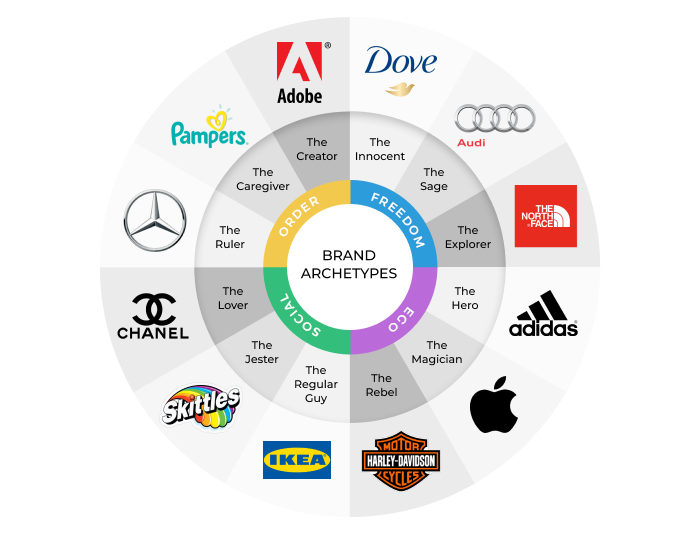Carl Jung was a Swiss psychiatrist who founded the field of analytical psychology. He has been dead for over 60 years now, but his ideas are still debated in grad school marketing classes. One of his most famous ideas was regarding archetypes. Anyone interested in doing a deep dive on the subject can find volumes of material on YouTube.
Consumer psychology matters
It may seem like a trivial concept, but it’s important to understand that 95% of our purchase decisions are made unconsciously. Our minds are always looking for clues to interpret and understand our world. Humans are irrational. We buy on emotion and try to justify it later with logic. The most critical rule in this paradigm is the No. 1 rule of sales: People buy from people, and they are more likely to buy if they feel they have something in common with the company or sales rep.
Brand archetypes
Jung’s work on archetypes can, like many concepts in philosophy, be applied to business. A quick Google search on “brand archetypes” will pull up tons of information on the individual personas, their traits, goals, fears, etc. For this article, let’s look at the simplest of all concepts — motivation.
Each of the 12 brand archetypes corresponds to one of four basic emotional motivators: ego, social, order, and freedom. You can create an entire brand persona around these archetypes. It’s a way to position yourself within your market, it can help identify the tone of your marketing, and it can also help you attract customers like you. Customers that don’t need to be convinced to do business with you because they feel like they already know you.

Ego: Leave a mark
The magician, rebel, and hero all want to impress others. They are showoffs, they are unique, and they are constantly seeking ways to improve themselves, excel at their particular field, or upgrade the way something is done. They cater to a customer base who is tired of the status quo and wants to upend it. Their methods of accomplishing this vary, of course, but the motivation is the same. If you like to do things differently, if you’re a rule breaker in your industry, or you simply don’t like what you have, and you want to make something better — your business fits here.
Social: Connect with others
The everyman, jester, and lover all want to forge special connections with others. They seek friendship, companionship, and love. They are caring, seek to be part of something larger and place a heavy emphasis on community. They cater to a customer base who is tired of transactional sales, hustling, negotiations, and worrying about whether or not they are making the right purchase decision. If you’re primarily concerned with comfort and making your customers feel at home, either through loyalty programs, long-term post-purchase engagements, or feel-good products — your business fits here.
Order: Provide structure
The ruler, caregiver, and creator want everything in its place. Tidy, meticulous, and secure. They want to remove risk and provide an impenetrable shield around themselves. They cater to a customer base who wants a sure thing, wants to know they’re getting their money’s worth, and isn’t interested in choice — but rather wants more confidence in the choices presented. If you’re primarily about detailed workflows, certifications, and perfectionism — your business fits here.
Freedom: Seeking nirvana
The explorer, innocent, and sage are all on a journey of improvement. They want to break free from the now and the norm. They seek enlightenment, knowledge, and adventure. Everything about their being screams, “This is not where I belong.” They cater to a customer base who would rather be anywhere but where they are — whether through physical, mental, or emotional journeys. They want more from life. If you’re about experimentation, finding the new normal, or seeking a higher sense of purpose — your business fits here.
Never a one size fits all
Of course, no person or company can fit entirely inside a single archetype. In the example above, Apple could very easily be a creator, and Harley-Davidson could easily be an explorer. The purpose of an exercise like this is to identify what your business represents, what your values are, and what the values of your customers are. It’s a subtle nod to your prospects that says, “This is what we believe in; we’re just like you.” Use it as a positioning tool to separate yourself from others and strengthen your brand.
A brand is nothing more than an opportunity to help your customers make an easier decision. The easier the decision, the quicker they part with their money and transact with your company. When customers feel like you have something in common, or you represent their values, it will be very difficult for them to ignore you and go across the street to your competition.




